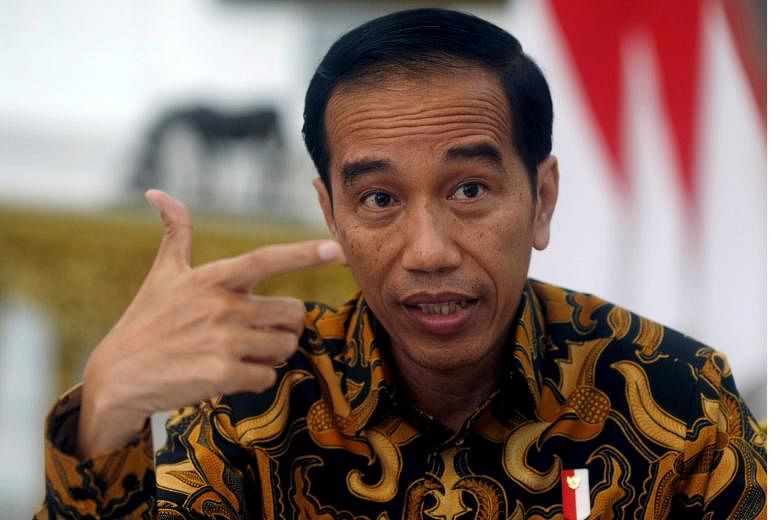JAKARTA (THE JAKARTA POST/ASIA NEWS NETWORK, REUTERS) - The working visit by Indonesia's President Joko Widodo to Central Kalimantan on Thursday (Oct 8) was planned long ago, the Presidential Secretariat said, denying claims on social media that he was avoiding mass protests against a controversial new law.
Mass protests have broken out from Tuesday in Greater Jakarta against the highly controversial Job Creation Law, following its passage in Parliament on Monday - earlier than originally planned.
Clashes continued on Thursday with police firing tear gas and water cannon in the Indonesian capital Jakarta to disperse shouting demonstrators after stones were thrown. Protesters had gathered in several points in central Jakarta.
Netizens have responded to Mr Joko's working visit with the Twitter hashtag #JokowiKabur (Jokowi Runs Away), which trended on the platform.
Mr Bey Machmudin, the secretariat's deputy for protocol, press and the media, said Mr Joko's trip to Kalimantan had been planned for a long time.
"The presidential agenda for the food estate has been scheduled in advance. So it has absolutely nothing to do with the demonstrations," he told reporters on Wednesday, as quoted by tempo.co.
Mr Joko will inspect a food estate in Central Kalimantan, examining rice cultivation, fish cages and duck farms located in Pandih Batu district.
He was to later head to Pulang Pisau regency to distribute initial working capital aid to small and medium enterprises.
"The President is indeed concerned about national food security because as the FAO (UN Food and Agriculture Organisation) has warned, there is a risk of food scarcity because of the pandemic.
"The President wants to directly observe the progress of the food estate," Mr Bey said.
In Kalimantan, Mr Joko addressed only issues of food security.
He made no statement about the nationwide protests.
The new law was touted as necessary to attract foreign investments and create jobs to redress a coronavirus-hit economy by allowing companies to keep workers on contract infinitely, but provides, for the first time, government-sponsored job security insurance.
But critics say this disincentivises formal hiring and weakens workers rights. The law has also been slammed for reducing environmental protections.

